by Anita Baskin
A single-page Omni magazine article about alien encounters, presented both as the version published in July 1994 and also as an earlier draft.
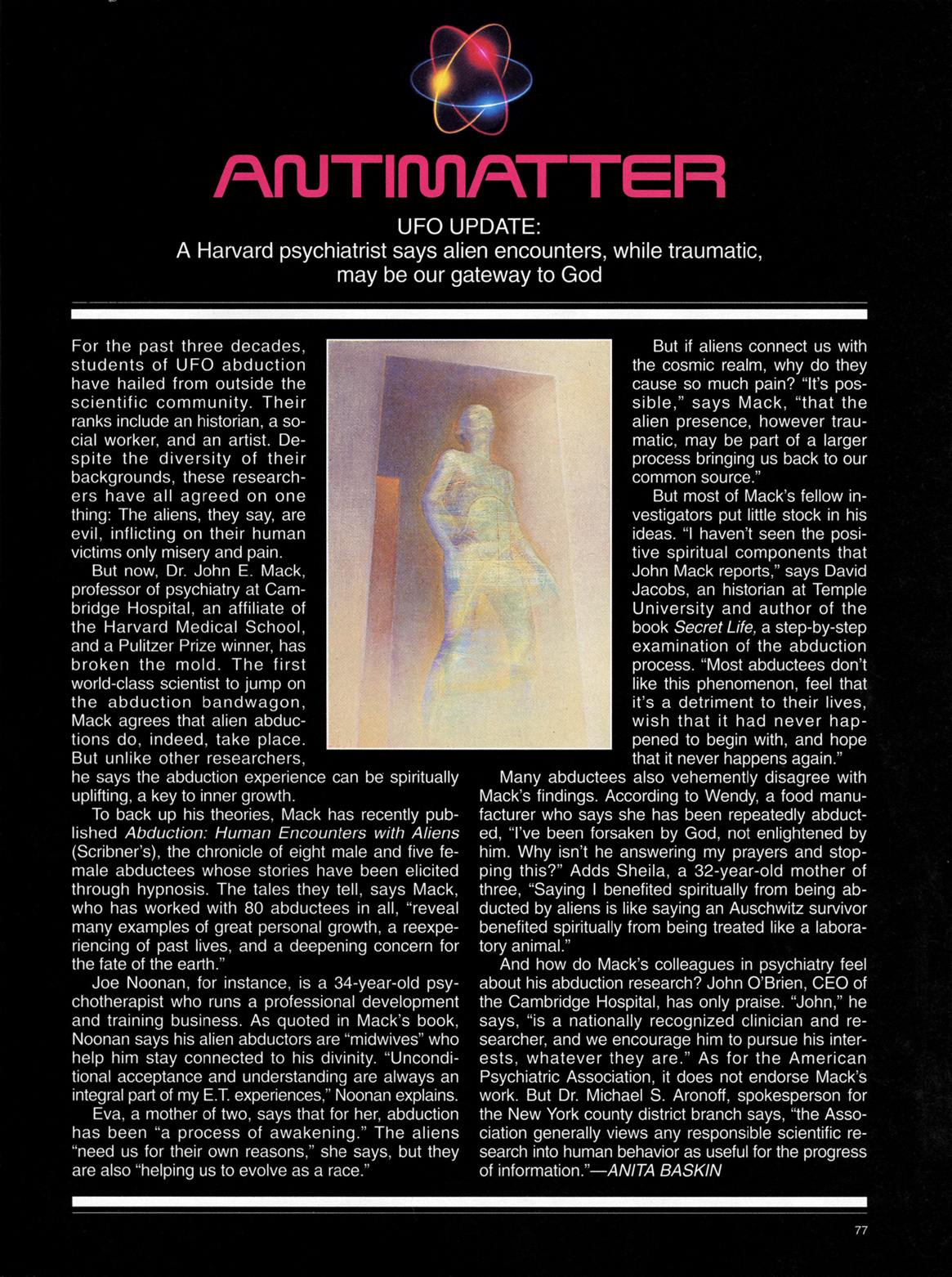
Click image for larger view
For the past three decades, students of UFO abduction have hailed from outside the scientific community. Their ranks include an historian, a social worker, and an artist. Despite the diversity of their backgrounds, these researchers have all agreed on one thing: The aliens, they say, are evil, inflicting on their human victims only misery and pain.
But now, Dr. John E. Mack, professor of psychiatry at Cambridge Hospital, an affiliate of the Harvard Medical School, and a Pulitzer Prize winner, has broken the mold. The first world-class scientist to jump on the abduction bandwagon, Mack agrees that alien abductions do, indeed, take place. But unlike other researchers, he says the abduction experience can be spiritually uplifting, a key to inner growth.
To back up his theories, Mack has recently published Abduction: Human Encounters with Aliens (Scribner’s), the chronicle of eight male and five female abductees whose stories have been elicited through hypnosis. The tales they tell, says Mack, who has worked with 80 abductees in all, “reveal many examples of great personal growth, a reexperiencing of past lives, and a deepening concern for the fate of the earth.”
Joe Noonan, for instance, is a 34-year-old psychotherapist who runs a professional development and training business. As quoted in Mack’s book, Noonan says his alien abductors are “midwives” who help him stay connected to his divinity. “Unconditional acceptance and understanding are always an integral part of my E.T. experiences,” Noonan explains.
Eva, a mother of two, says that for her, abduction has been “a process of awakening.” The aliens “Need us for their own reasons,” she says, but they are also “helping us to evolve as a race.”
But if aliens connect us with the cosmic realm, why do they cause so much pain? “It’s possible,” says Mack, “that the alien presence, however traumatic, may be part of a larger process bringing us back to our common source.”
But most of Mack’s fellow investigators put little stock in his ideas. “I haven’t seen the positive spiritual components that John Mack reports,” says David Jacobs, an historian at Temple University and author of the book Secret Life, a step-by-step examination of the abduction process. “Most abductees don’t like this phenomenon, feel that it’s a detriment to their lives, wish that it had never happened to begin with, and hope that it never happens again.”
Many abductees also vehemently disagree with Mack’s findings. According to Wendy, a food manufacturer who says she has been repeatedly abducted, “I’ve been forsaken by God, not enlightened by him. Why isn’t he answering my prayers and stopping this?” Adds Sheila, a 32-year-old mother of three, “Saying I benefited spiritually from being abducted by aliens is like saying an Auschwitz survivor benefited spiritually from being treated like a laboratory animal.”
And how do Mack’s colleagues in psychiatry feel about his abduction research? John O’Brien, CEO of the Cambridge Hospital, has only praise. “John,” he says, “is a nationally recognized clinician and researcher, and we encourage him to pursue his interests, whatever they are.” As for the American Psychiatric Association, it does not endorse Mack’s work. But Dr. Michael S. Aronoff, spokesperson for the New York county district branch says, “the Association generally views any responsible scientific research into human behavior as useful for the progress of information.”
Below are selections from an earlier draft of the essay that were provided to Mack. Some additional sentences are present. This is followed by a reconstruction of the earlier draft, with the restored sentences in red.
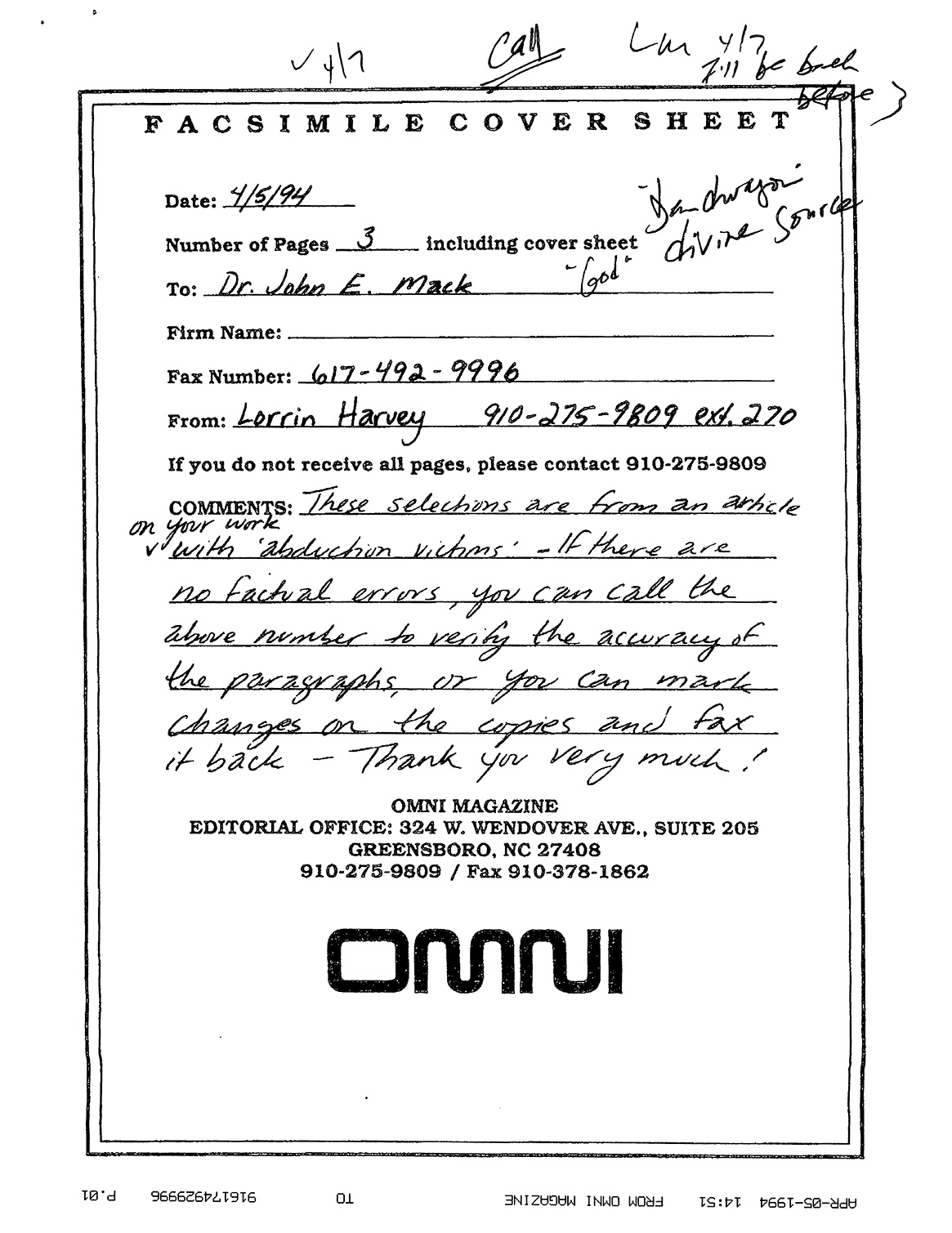
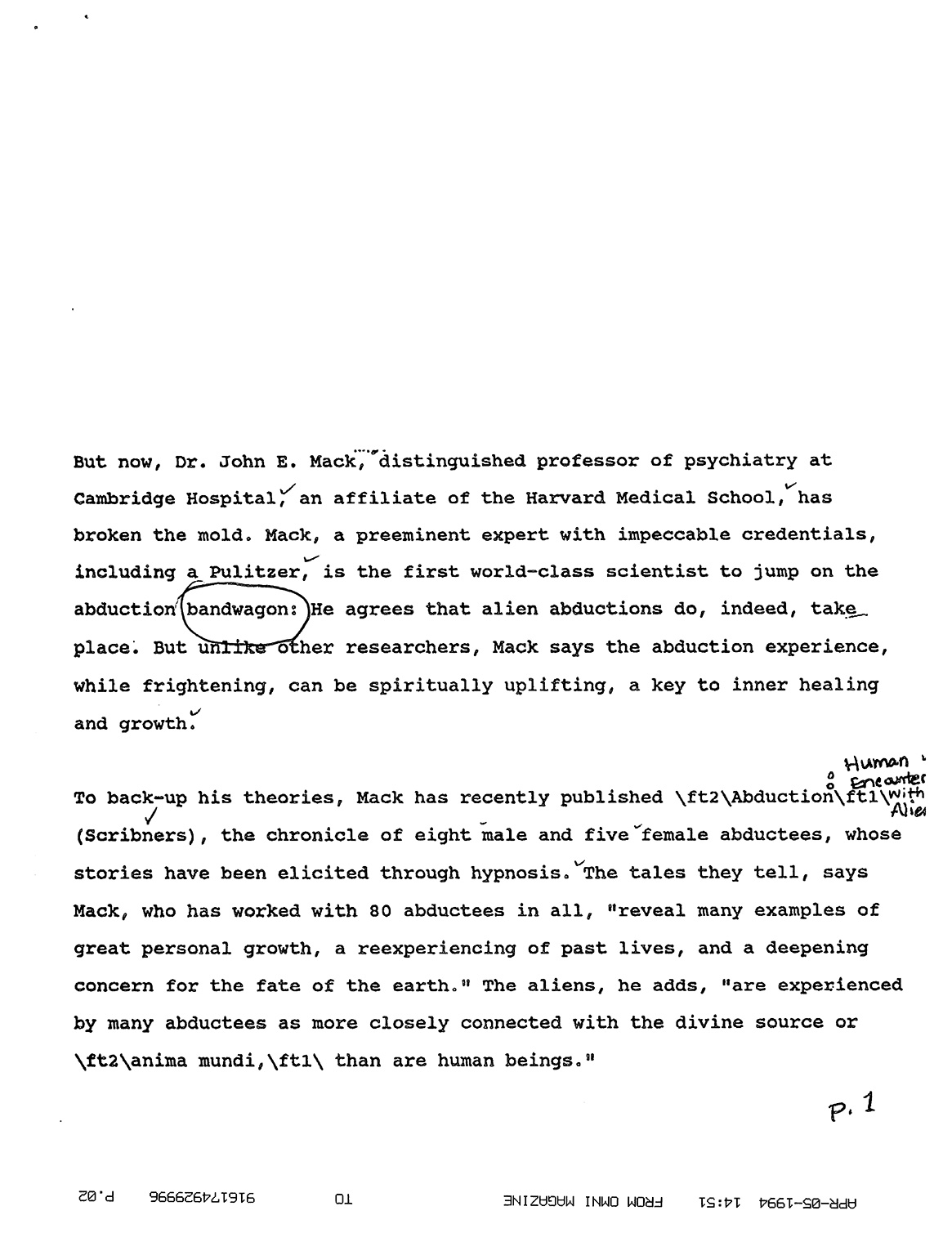
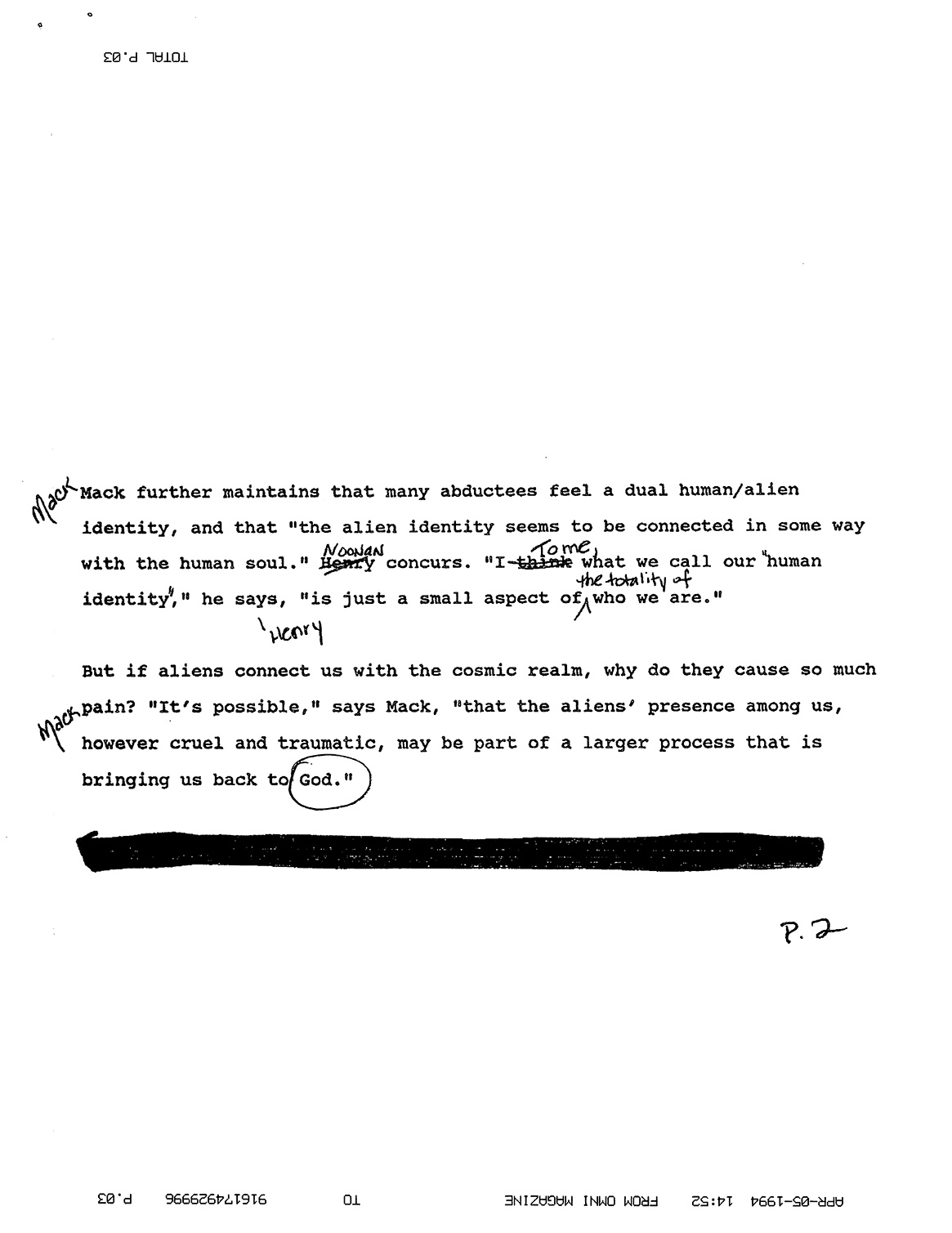
A Harvard psychiatrist says alien encounters, while traumatic, may be our gateway to God (Earlier Draft, Reconstructed)
by Anita Baskin
For the past three decades, students of UFO abduction have hailed from outside the scientific community. Their ranks include an historian, a social worker, and an artist. Despite the diversity of their backgrounds, these researchers have all agreed on one thing: The aliens, they say, are evil, inflicting on their human victims only misery and pain.
But now, Dr. John E. Mack, distinguished professor of psychiatry at Cambridge Hospital, an affiliate of the Harvard Medical School, and a Pulitzer Prize winner, has broken the mold. Mack, a preeminent expert with impeccable credentials, including a Pulitzer, is Tthe first world-class scientist to jump on the abduction bandwagon., Mack He agrees that alien abductions do, indeed, take place. But unlike other researchers, he says the abduction experience, while frightening, can be spiritually uplifting, a key to inner healing and growth.
To back up his theories, Mack has recently published Abduction: Human Encounters with Aliens (Scribner’s), the chronicle of eight male and five female abductees whose stories have been elicited through hypnosis. The tales they tell, says Mack, who has worked with 80 abductees in all, “reveal many examples of great personal growth, a reexperiencing of past lives, and a deepening concern for the fate of the earth.” The aliens, he adds, “are experienced by many abductees as more closely connected with the divine source or anima mundi, than are human beings.”
Joe Noonan, for instance, is a 34-year-old psychotherapist who runs a professional development and training business. As quoted in Mack’s book, Noonan says his alien abductors are “midwives” who help him stay connected to his divinity. “Unconditional acceptance and understanding are always an integral part of my E.T. experiences,” Noonan explains.
Eva, a mother of two, says that for her, abduction has been “a process of awakening.” The aliens “Need us for their own reasons,” she says, but they are also “helping us to evolve as a race.”
Mack further maintains that many abductees feel a dual human/alien identity, and that “the alien identity seems to be connected in some way with the human soul.” Noonan concurs. “To me, what we call our ‘human identity’,” he says, “is just a small aspect of the totality of who we are.”
But if aliens connect us with the cosmic realm, why do they cause so much pain? “It’s possible,” says Mack, “that the alien presence among us, however cruel and traumatic, may be part of a larger process that is bringing us back to God our common source.”
But most of Mack’s fellow investigators put little stock in his ideas. “I haven’t seen the positive spiritual components that John Mack reports,” says David Jacobs, an historian at Temple University and author of the book Secret Life, a step-by-step examination of the abduction process. “Most abductees don’t like this phenomenon, feel that it’s a detriment to their lives, wish that it had never happened to begin with, and hope that it never happens again.”
Many abductees also vehemently disagree with Mack’s findings. According to Wendy, a food manufacturer who says she has been repeatedly abducted, “I’ve been forsaken by God, not enlightened by him. Why isn’t he answering my prayers and stopping this?” Adds Sheila, a 32-year-old mother of three, “Saying I benefited spiritually from being abducted by aliens is like saying an Auschwitz survivor benefited spiritually from being treated like a laboratory animal.”
And how do Mack’s colleagues in psychiatry feel about his abduction research? John O’Brien, CEO of the Cambridge Hospital, has only praise. “John,” he says, “is a nationally recognized clinician and researcher, and we encourage him to pursue his interests, whatever they are.” As for the American Psychiatric Association, it does not endorse Mack’s work. But Dr. Michael S. Aronoff, spokesperson for the New York county district branch says, “the Association generally views any responsible scientific research into human behavior as useful for the progress of information.”
-
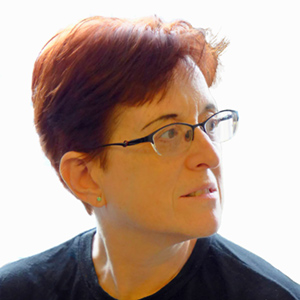 Anita Baskin-Salzberg is a freelance copywriter and journalist. She has written for OMNI, Health, and The New York Times Magazine. With her husband, Allen, she has authored three children’s books: Predators!, Flightless Birds, and Turtles, and articles on turtles and horseshoe crabs for Ranger Rick. She currently lives with Allen, two cats, one ball python, and a paltry eight turtles in Queens, New York.
Anita Baskin-Salzberg is a freelance copywriter and journalist. She has written for OMNI, Health, and The New York Times Magazine. With her husband, Allen, she has authored three children’s books: Predators!, Flightless Birds, and Turtles, and articles on turtles and horseshoe crabs for Ranger Rick. She currently lives with Allen, two cats, one ball python, and a paltry eight turtles in Queens, New York.
© 1994 Anita Baskin-Salzberg
Originally published in Omni
July 1994, p.77